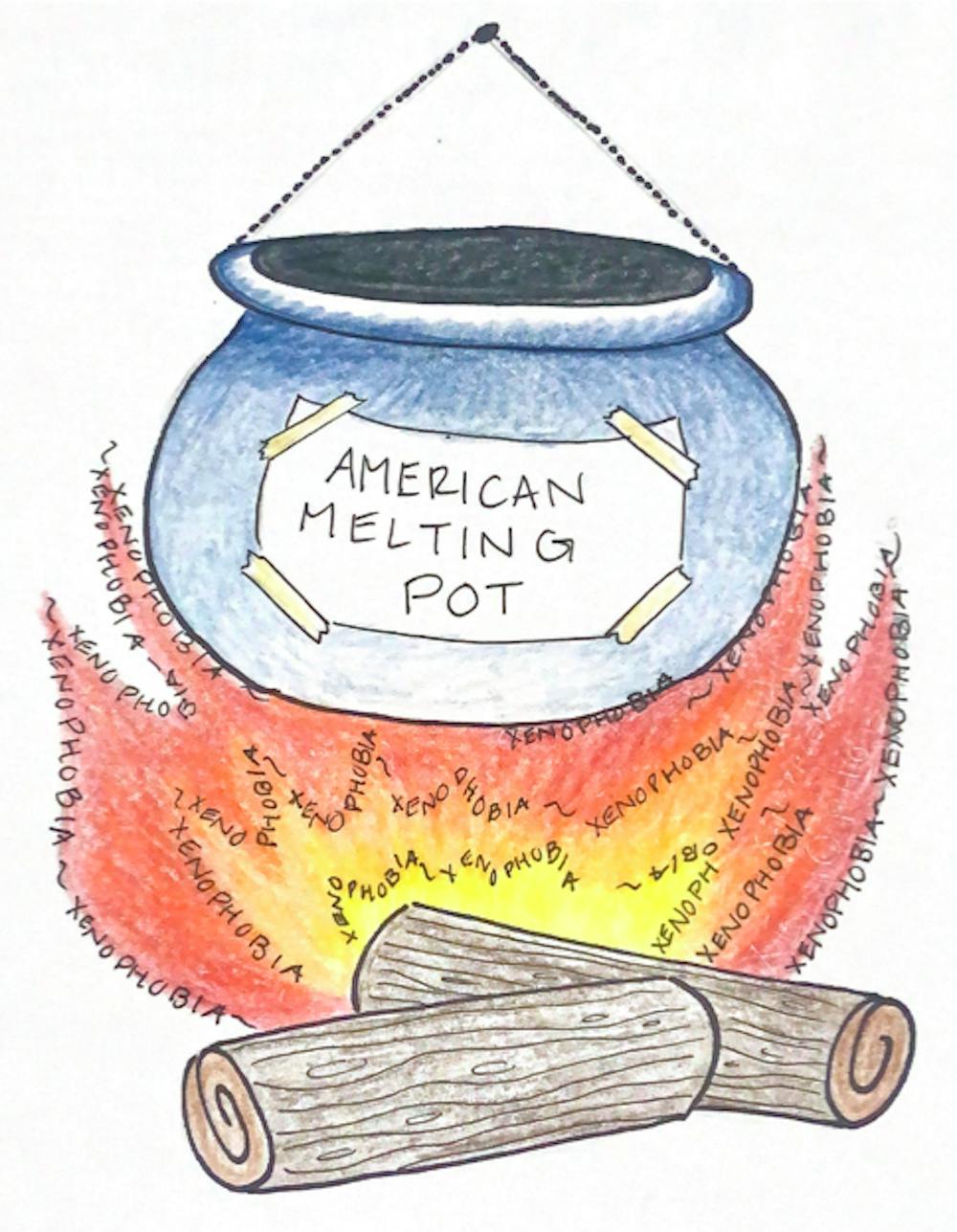Most Americans have heard the expression “the melting pot” used to describe the diversity of our country. Most have also heard the commander in chief refer to immigrants as “animals” and talk about “sh*thole countries” when referring to nations like Haiti. This juxtaposition poses an important question: What would the re-election of this president mean for the future of immigration in America?
Immigration was a central issue in the 2016 campaign as Trump turned the notion of a border wall into a ubiquitous catchphrase and joked about deporting his opponent. This year, however, the pandemic and subsequent recession have forced immigration to take a backseat in the national consciousness. There is only one word to describe the actions and sentiment of this administration towards immigrants: xenophobic.
While his base celebrates the border wall, the president is busy finding additional ways to keep people from other countries from entering America. Forbes Magazine reported that by 2021, Trump will have reduced legal immigration by almost 50% since arriving in the Oval. We saw a glimpse of this within the first months of his administration when he signed the executive order that banned citizens from Muslim-majority countries like Iraq and Libya from entering the U.S. In the name of American safety, the “Muslim ban” established clear prejudice against foreign nationals, an ideology apparent throughout his term. Another legacy of Trump’s tenure is his most unpardonable policy: children in cages. Pictures of young migrants forced to live in horrible conditions, wrapped in meager tinfoil blankets were all over the news and social media, yet it seemed like the people writing policy at 1600 Pennsylvania were unperturbed.
Since then, the Trump administration has quietly created more policies to slow and stop forms of legal immigration, the most recent being his proclamation to temporarily suspend work-based immigration to the United States. The wording of this policy is consistent with the administration’s attack on anything foreign: they claim their aim is to protect American jobs, yet simultaneously alienate the immigrant base that makes up for 17% of the labor force and 10% of the electorate. Saying immigrants “present risk” to the American labor force is inherently counterproductive to the country’s economic growth. Trump brags that he gave life to the best economy of any modern president, but his policies may stifle U.S. GDP growth for years to come.
The numbers provide a compelling argument on their own, but the administration’s rhetoric raises even more concerns. It first alarmed me in early 2017, when I heard a radio conversation on Breitbart between former Trump campaign strategist Steve Bannon and senior advisor Stephen Miller. They addressed the “scary” realities of legal immigration in the country and demeaned foreign workers. My parents are first-generation immigrants who came over legally and have been here for over 20 years, so I’ve had my eyes opened to the colossal amounts of red tape within the naturalization process for a while. It is the deliberate deceleration of this process that is perhaps the biggest “silent killer.” The Trump administration has made it harder for people to obtain work visas by adding harsher guidelines for businesses that make it harder to sponsor foreign workers. Here’s the bottom line: even the thought of immigrants working and improving business in this country makes the White House uncomfortable.
“Aliens.” It’s been the official nomenclature painfully attached to foreign nationals for years. The term is all over tax forms, immigration documents and even the news. We see it just enough to remember that there has always been the slightest bit of distaste towards immigrants in this country. The Trump administration has amplified this “slight distaste” into an explicit bias, yet that hasn’t discouraged immigrants from expressing their love for this country. Even though they can’t vote, my parents have been constantly reminding me to spread the word about voting.
Whether it’s passion, hope or just anger that gets them moving, immigrant communities are more active in our democracy now than ever, and that is proof that they are no different from the “Americans” that the White House explicitly favors. We cannot pinpoint why exactly the Trump Administration loves to make this distinction, but if it is allowed to continue, the principles of diversity and progress that have made this country so attractive to the outside world will become obsolete.

Tejas Srinivasan '24 (he/him) is an Editor at Large.
Originally from Cincinnati, Ohio, Tejas previously served as an opinion editor. He spent his junior year in London at King’s College. Outside of The Campus, he also hosts a podcast called Cultural Mixtapes which he started in the summer of 2022. Tejas is an English Major, on the literature track, with a music minor.


![Copy of Editorial [Susanna] (3) (1) (2) (1).JPG](https://snworksceo.imgix.net/mbc/11c1e285-1b2c-4ee9-9d20-4a2f24335290.sized-1000x1000.JPG?w=1500&ar=16%3A9&fit=crop&crop=faces&facepad=3&auto=format)

